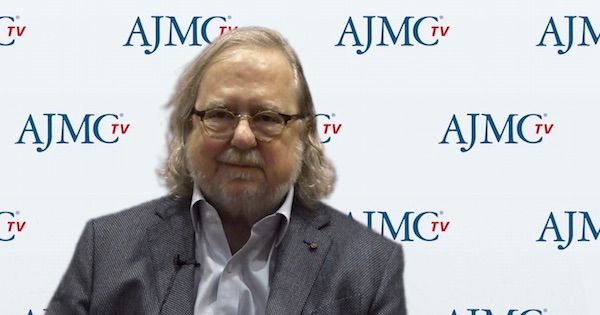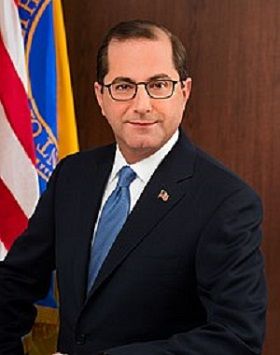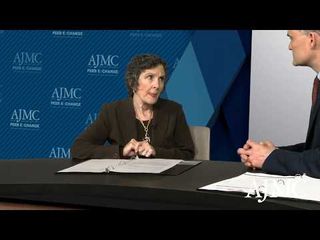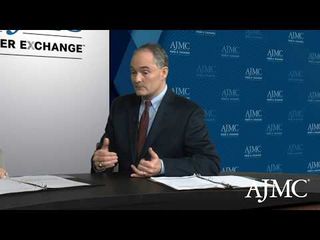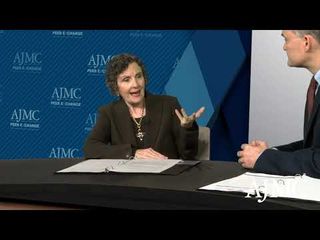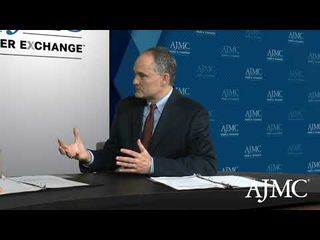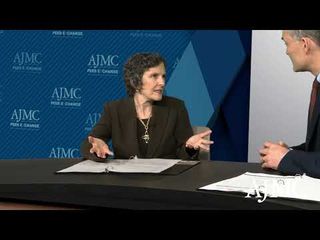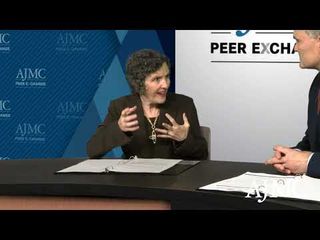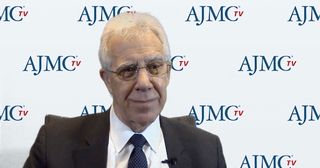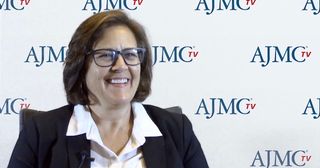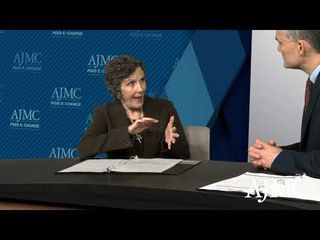
Oncology
Latest News

Latest Videos

More News

Thorvardur Halfdanarson, MD, associate professor of medicine and consultant in medical oncology, Mayo Clinic, discusses improvements in diagnostics for neuroendocrine tumors, as well as what improvements are still needed.
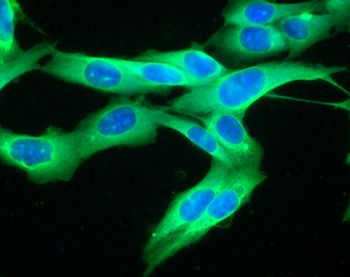
The use of CTLA-4, PD-1, or a combination approach achieved high response rates and improved overall survival in patients with CDKN2A mutations with metastatic melanoma, based on the results of a study by Helgadottir et al.
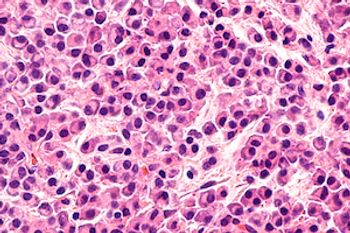
Daratumumab, a human CD38-directed monoclonal antibody, has been confirmed as safe in a population of heavily pretreated patients with multiple myeloma who received access to the treatment before the medication was commercially available, according to an early access treatment protocol study published in Cancer.
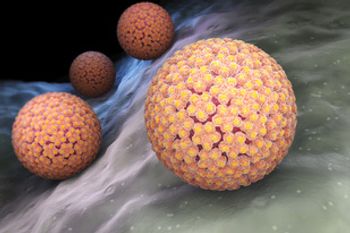
Hispanics living with HIV are at an increased risk of developing cancers caused by the human papillomavirus (HPV) compared to the general Hispanic population, and among people living with HIV, Hispanics are more likely to be diagnosed with cervical and penile cancer.

Somatostatins have been the most game-changing drug in the treatment landscape of gastroenteropancreatic neuroendocrine tumors, explained Scott Paulson, MD, co-director of the Gastrointestinal Research Program for The US Oncology Network, medical director for the Neuroendocrine Research and Treatment Center at Baylor Charles A. Sammons Cancer Center, Baylor University Medical Center.

While survival from leukemia improved among adults from 1995 to 2009, and the survival gap between sexes decreased, the racial gap did not, according to new research published in Cancer.

New guidelines released by the American Academy of Dermatology will help physicians provide the best treatment for more than 1 million Americans living with melanoma, the deadliest form of skin cancer. The guidelines also highlight the importance of discussions between physicians and patients.

To speak about the success and continued development of Priority Health's payment reform model in cancer care, John Fox, MD, medical director at Priority Health, joined Dennis Zoet, chief business development officer at Cancer and Hematology Centers of Western Michigan, on a panel at the Community Oncology Alliance Payer Exchange Summit.
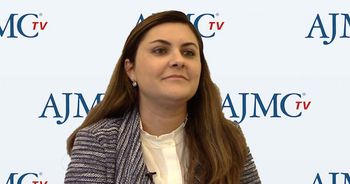
Dr Heloisa Soares on Barriers to Achieving Positive Outcomes in NETs, What's in Store for the Future
Heloisa Soares, MD, assistant professor, University of New Mexico Cancer Center-Albuquerque, outlines current barriers to achieving positive outcomes in neuroendocrine tumors (NETs) and what's in store for the future.
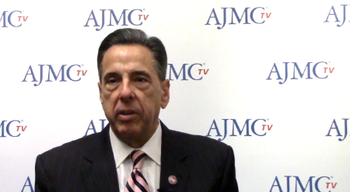
I’ve seen one case recently where a patient received $172,000 of drugs that were totally wasted. So, we’re going to be looking at this, we’re going to be looking at these middlemen getting in the way of the patient and the physician making a decision about their therapy, explained Ted Okon, executive director of COA.
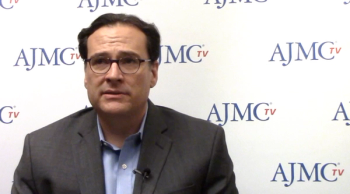
Looking at total cost of care is difficult and figuring out what the practice is responsible for and not responsible for can be very difficult to do, said Lalan Wilfong, MD, executive vice president of Quality Programs at Texas Oncology.
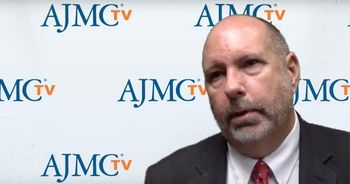
A patient has their own set of values, providers have their own set of values, and the people that pay for it have their own set of values. So, [we all need to] come together, explains Bo Gamble, Director Of Strategic Practice Initiatives at the Community Oncology Alliance.

At the Community Oncology Alliance Payer Exchange Summit, healthcare policy experts from a government relations firm and from the pharmaceutical industry provided an update on the progress with value-based agreements and also discussed the challenges posed by the existing infrastructure and operational framework.
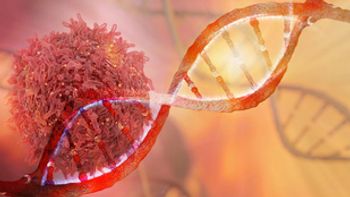
In the last decade, testing for and treatment of chronic lymphocytic leukemia (CLL) had undergone substantial changes with new testing that can personalize therapy and new agents that provide more clinical benefit.

The Community Oncology Alliance (COA) has been working with its member practices and some payer partners who have successfully implemented innovative care delivery and payment models to develop a 2.0 version of CMS’ Oncology Care Model (OCM). A progress report was presented at COA’s Payer Exchange Summit held October 29-30 in Tyson’s Corner, Virginia.

While practice transformation is vital, community-based clinics continue to struggle with emergency department (ED) use, hospitalization, and risk stratification as they identify ways to reduce unnecessary expenditures within their Oncology Care Model (OCM) practice.
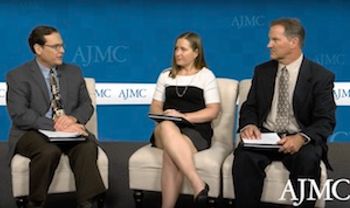
Lalan Wilfong, MD, moderated a conversation between Robert E. Baird, MD, CEO of Dayton Physicians Network, and Sarah Cevallos, chief revenue cycle officer for Florida Cancer Specialists and Research Institute, about current and future strategies for Oncology Care Model (OCM) participation, as well as key lessons from the OCM and how they can be applied in other reform models.

Every week, The American Journal of Managed Care® recaps the top managed care news of the week, and you can now listen to it on our podcast, Managed Care Cast.

This week, the top managed care news included the Trump administration giving governors the power to overhaul section 1332 waivers under the Affordable Care Act (ACA); CMS disclosed a breach in the portal that agents and brokers use to assist consumers signing up for health coverage under the ACA; about one-third of all US healthcare payments in 2017 were tied to alternative payment models.

A recent trial sought to assess the effect of palbociclib on overall survival (OS) and the efficacy of subsequent therapy in patients with hormone receptor–positive (HR+), HER2-negative advanced breast cancer.

According to a study presented at the ESMO 2018 Congress in Munich, Germany, treatment with PD-1 or PD-L1 inhibitors is a feasible option for patients who have cancer and are living with HIV.

A survivor of chronic lymphocytic leukemia who participated in the first chimeric antigen receptor T-cell trial in 2010 looks back at his experience and also discusses his views on how patient-reported outcomes (PROs) should be used, if at all, by CMS.
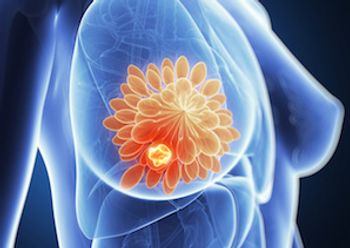
A phase 3 trial recently investigated if nanoparticle albumin-bound paclitaxel enhances the treatment of atezolizumab in unresectable locally advanced or metastatic triple-negative breast cancer.

It’s fair to say that the initial results of immunotherapy in neuroendocrine tumors (NETs) have been somewhat disappointing, explained Thorvardur Halfdanarson, MD, associate professor of medicine and consultant in medical oncology, Mayo Clinic.

Accountable care organizations (ACOs) in the Medicare Shared Savings Program vary considerably in how they treat men with newly diagnosed prostate cancer, according to a study that assessed whether the level of engagement in ACOs by urologists could affect rates of treatment, overtreatment, and spending in prostate cancer care.

